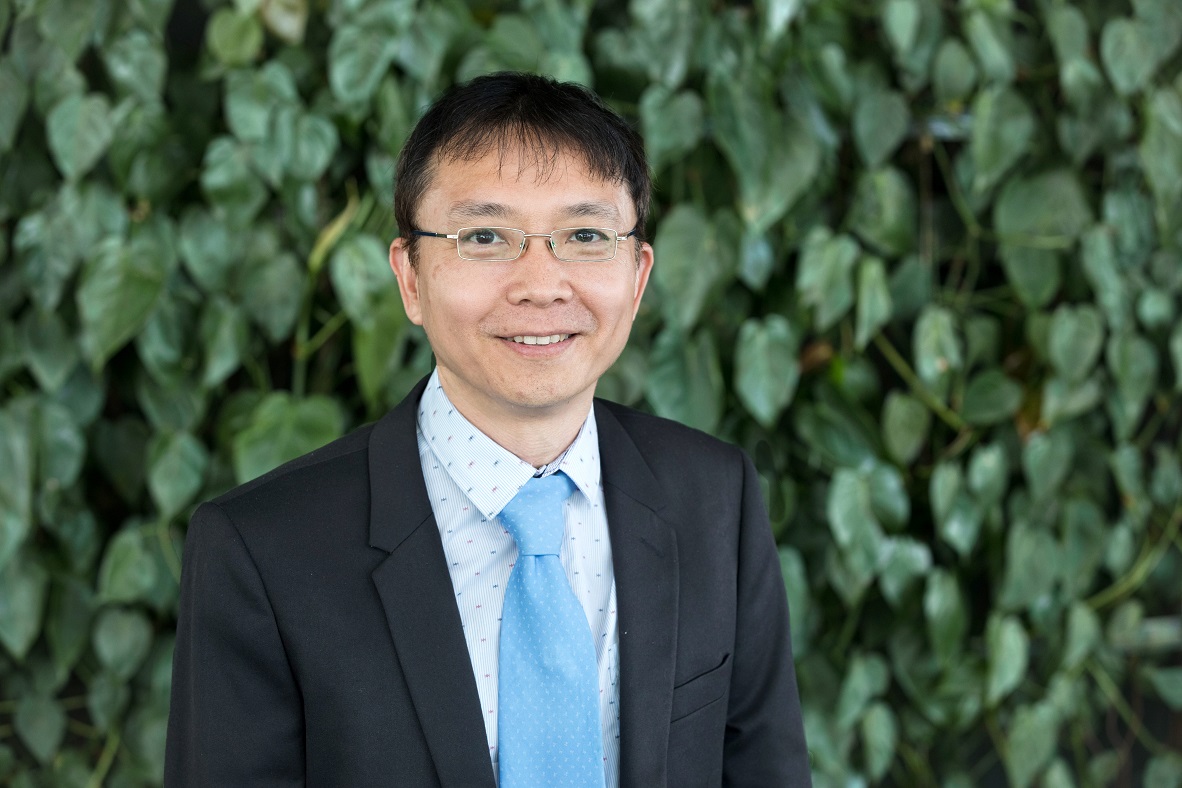Outsmarting urban woes
How collaboration between NTU, Singtel and the National Research Foundation, Singapore is helping to scale up Singapore's digital transformation.

Just as today’s technological developments have equipped our smartphones with a dazzling array of functions beyond simple call and text, the cities we live in can also undergo such transformations. Technology can help with the many challenging aspects of urban life, from seemingly trivial inconveniences like finding a parking space during peak hours to pressing global issues such as resource constraints and labour shortages.
While Singapore has already topped the Institute of Management Development-Singapore University of Technology and Design (IMD-SUTD) Smart City Index as the world’s smartest city for the past three years, one joint lab at NTU wants to make the country even smarter through research and collaboration.
The best of both worlds
In 2017, the Singtel Cognitive and Artificial Intelligence Lab for Enterprises (SCALE@NTU) was jointly established by NTU, Singtel and the National Research Foundation, Singapore. This five-year collaboration is led by NCS, a digital and technology services unit of Singtel. The partnership brings together professionals with academic expertise and industry experience to jointly develop and apply AI innovations for the next generation of smart city solutions.
“SCALE@NTU aims to support Singapore’s transformation into a Smart Nation and boost the country’s digital economy with AI innovations,” says SCALE@NTU Co-director Prof Ong Yew Soon. “The development of smart and safe city solutions helps to optimise city functions and promote economic growth, while also improving citizens’ quality of life through the application of data analysis and smart technologies.”
Such technologies include AI-based solutions to address a plethora of urban problems, adds Dr Chen Quan, Associate Director at the joint lab. Dr Chen, who manages SCALE@NTU’s operations and projects, says SCALE@ NTU is focused on developing ways to improve personal healthcare, enhance services, schedule resources and manage energy, as well as maintain community safety and connectivity.
Innovation that makes a difference

SCALE@NTU aims to support Singapore’s transformation into a Smart Nation and boost the country’s digital economy with AI innovations, says the lab's Co-director Prof Ong Yew Soon. Credit: NTU.
For the research teams at SCALE@NTU, the input from NCS has proven to be invaluable.
“NCS works closely with the NTU teams and provides us with the latest industry problem statements, helping us better understand what we need to focus our research on or which new areas to explore,” explains Prof Ong. “In that way, we are able to keep our AI research up to date to address evolving industry needs.”
It’s a strategy that has clearly worked; SCALE@NTU now has a wealth of unique intellectual property under its belt, including over 60 Technology Disclosures and more than 20 filed patents. Many of the research innovations have also found a home in NCS products, and are poised to reach and benefit consumers.
In particular, one innovative idea by SCALE@NTU researchers may ease the challenge of finding a parking lot in congested city areas, while reducing traffic jams and greenhouse gas emissions.
Led by SCALE@NTU Co-director Prof Cong Gao, the research team developed a neural network based on data from the Land Transport Authority of Singapore to monitor road and parking conditions. When deployed through a mobile app, the algorithm could help citizens navigate roads effortlessly to locate available carpark lots in a network of 2,000 carparks, while also accurately predicting which ones will be vacant within the hour.
Another collaborative project with NCS aims to use machines to solve the growing issue of labour shortages faced by an ageing population.
While advances in robotics can alleviate some workforce shortages, having multiple robots perform shared responsibilities is no easy feat. To address this challenge, a research team led by SCALE@NTU Principal Investigator Assoc Prof Tang Xueyan has developed algorithms that can be used to plan and manage a fleet of robots, allowing them to work together more efficiently to solve complex problems.
“This research is currently part of a proof of concept for a national initiative.” shares Dr Chen.
Building the future together
Since its inception, SCALE@NTU has published more than 60 research papers, trained over 190 researchers and students in AI and data science, and been featured in Singapore’s National AI Strategy.
Beyond these accomplishments, SCALE@NTU has also demonstrated how collaborating with industry players can further boost the translation of research into applications.
In the ever-evolving landscape of AI technology, such efforts to keep pace with the latest challenges and requirements in the field ensure that the joint laboratory remains a pivotal player in Singapore’s push towards integrating smart city technologies with daily life.
“We will continue to initiate research projects based on the developments in the field of AI and align them with NCS’s rapid innovation cycles,” says Prof Ong, adding that SCALE@NTU will also focus on transferring mature technologies to NCS to be applied in the development of new AI products and services.
Similarly, Dr Chen sees the joint lab’s future prospects. “Based on the input from NCS, there’s meaningful research to be done at the intersection of 5G, AI, extended reality and robotics,” he says. “By partnering with governments and enterprises, we can unlock these many exciting possibilities to further advance communities in Singapore and beyond.”
The article appeared first in NTU's research & innovation magazine Pushing Frontiers (issue #20, June 2022).





.tmb-listing.jpg?Culture=en&sfvrsn=9b7345be_1)
.tmb-listing.jpg?Culture=en&sfvrsn=57e7d9a3_1)
.tmb-listing.jpg?Culture=en&sfvrsn=462ec612_1)